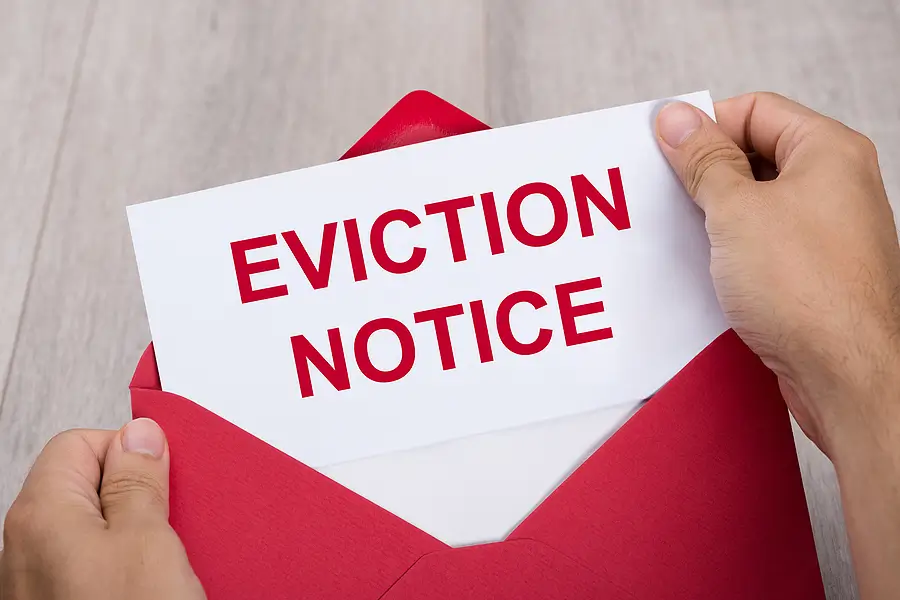Evicting tenants is one of the most challenging aspects of managing rental properties. For Denver property owners, understanding how long it takes to evict tenants and the specific steps required under Colorado law is crucial. This guide, brought to you by PMI Elevation, provides a comprehensive look at the eviction process—from issuing an eviction notice to regaining possession of your property—helping you successfully navigate eviction proceedings.
Understanding the Eviction Process in Denver
Evictions in Denver must follow strict legal protocols set by Colorado state law. On average, an uncontested eviction can take anywhere from four weeks to three months, depending on factors such as the tenant’s response, court scheduling, and compliance with legal procedures.
Denver property owners must follow a series of steps to legally evict a tenant, including serving the correct notice, filing in the appropriate court, and obtaining a writ of restitution if the tenant refuses to leave voluntarily. Failure to follow these steps can result in delays or the dismissal of the case, impacting your ability to collect rent and maintain your mortgage payments.
Step 1: Issuing an Eviction Notice
The eviction process begins with delivering a legally compliant written notice. The type of notice required depends on the reason for the eviction:
Non-Payment of Rent: Colorado landlords must issue a 10-day notice for tenants to either pay rent or vacate. If the tenant pays within this notice period, the eviction process cannot continue.
Lease Violations: For breaches of the lease agreement, such as unauthorized pets or damaging the premises, landlords must provide a 10-day notice to cure or quit, giving tenants time to address the violation.
Non-Renewal of a Month-to-Month Lease: If you choose not to renew a rental agreement, Colorado law mandates a 21-day notice before the end of the rental period.
Denver landlords must also include a notice of tenant rights with the eviction notice, as failing to do so could lead to the notice being deemed invalid, setting back the eviction timeline.
Step 2: Filing the Eviction Case in Court
If the tenant does not comply with the notice, landlords can file an eviction case (unlawful detainer) with the local county court. In Denver, this involves submitting a complaint and serving the tenant with a summons, initiating the court process. Handling eviction cases requires careful documentation and adherence to legal procedures to avoid delays or dismissal of the case.
Important Considerations:
Ensure all documents are organized, including copies of the lease agreement, proof of violations, and communication with the tenant.
The court usually schedules a court date for the hearing within 7 to 14 days after filing, depending on availability.
Preparing thorough documentation is crucial to ensure the judge rules in the landlord’s favor. When a landlord wins the case, it allows them to take the next steps toward reclaiming their property. However, if errors were made in issuing the notice or filing the case, the judge may side with the tenant, resulting in penalties, such as resetting the eviction process.
Step 3: Attending the Court Hearing
At the court hearing, both the landlord and tenant present their cases. As the rental property owner, you must demonstrate that the tenant violated the lease or failed to pay rent, justifying the legal reason for eviction. If the tenant contests the eviction, they may file a defense or counterclaim, which can extend the process.
If the judge rules in the landlord’s favor, you’ll be granted a judgment for possession, allowing you to take the next steps toward reclaiming your property. However, if errors were made in issuing the notice or filing the case, the judge may side with the tenant, resulting in penalties, such as resetting the eviction process.
Step 4: Enforcing the Court Order and Sheriff Involvement
Even after winning the eviction case, the tenant might refuse to leave. In such cases, the landlord must obtain a writ of restitution, which authorizes the sheriff to forcefully evict the tenant. The writ gives the tenant 48 hours to vacate the premises before the sheriff carries out the eviction.
Timeline Considerations:
The writ of restitution usually takes one to two weeks to execute, depending on the sheriff’s availability.
If the tenant still refuses to vacate, they may be forcefully evicted, and their belongings removed from the rental property.
At this stage, the eviction is complete, and the property owner regains possession.
Factors That Can Lengthen the Eviction Process
Several factors may cause delays in the eviction process:
Tenant Appeals: Tenants can appeal the eviction ruling or file counterclaims, which can drag out the timeline for several weeks or even six months.
Court Delays: The availability of court dates, especially in busy jurisdictions like Denver, can extend the process.
Notice or Filing Errors: Mistakes in serving the notice, incorrect dates, or missing documents can lead to setbacks, forcing landlords to restart the process.
Tenant Files a Defense: If the tenant files a defense or responds to the eviction notice, it can complicate the case and prolong the resolution.
These potential hurdles highlight the importance of attention to detail and compliance with all legal steps.
How Long Does an Eviction Take in Denver?
In Denver, evictions typically take four to six weeks in uncontested cases. However, contested cases, tenant defenses, or court delays can extend the timeline to several months. Understanding these variables helps landlords set realistic expectations and avoid prolonged disputes.
Preventing Evictions: Best Practices for Denver Landlords
Evictions are stressful and time-consuming, so prevention is key. Consider these strategies to avoid tenant disputes:
Thorough Background Checks: Screening tenants carefully, including verifying income, rental history, and references, reduces the likelihood of renting to tenants who may default.
Clear Lease Agreements: Ensure the rental agreement clearly defines lease terms, payment schedules, and consequences for violations.
Proactive Communication: Address potential issues early on through clear and respectful communication with tenants to avoid disputes escalating.
Working with a professional property management company like Denver Property Management can also help landlords avoid eviction scenarios by managing everything from lease agreements to renter disputes.
Expert Guidance on Navigating Denver Evictions with PMI Elevation
Evictions are complex and demand strict adherence to Denver and Colorado eviction laws. Understanding the process, following all required steps, and preparing thoroughly are essential for landlords to legally evict problem tenants while minimizing disruption to their rental operations.
For further reading, check out our blog on 5 Rent Collection Tips for Landlords in Denver, CO to help you maintain steady rental income and avoid the challenges that can lead to evictions.
If you’re facing eviction challenges or need help managing your rentals, PMI Elevation is here to assist. Visit our contact page to learn more about our expert property management services.


